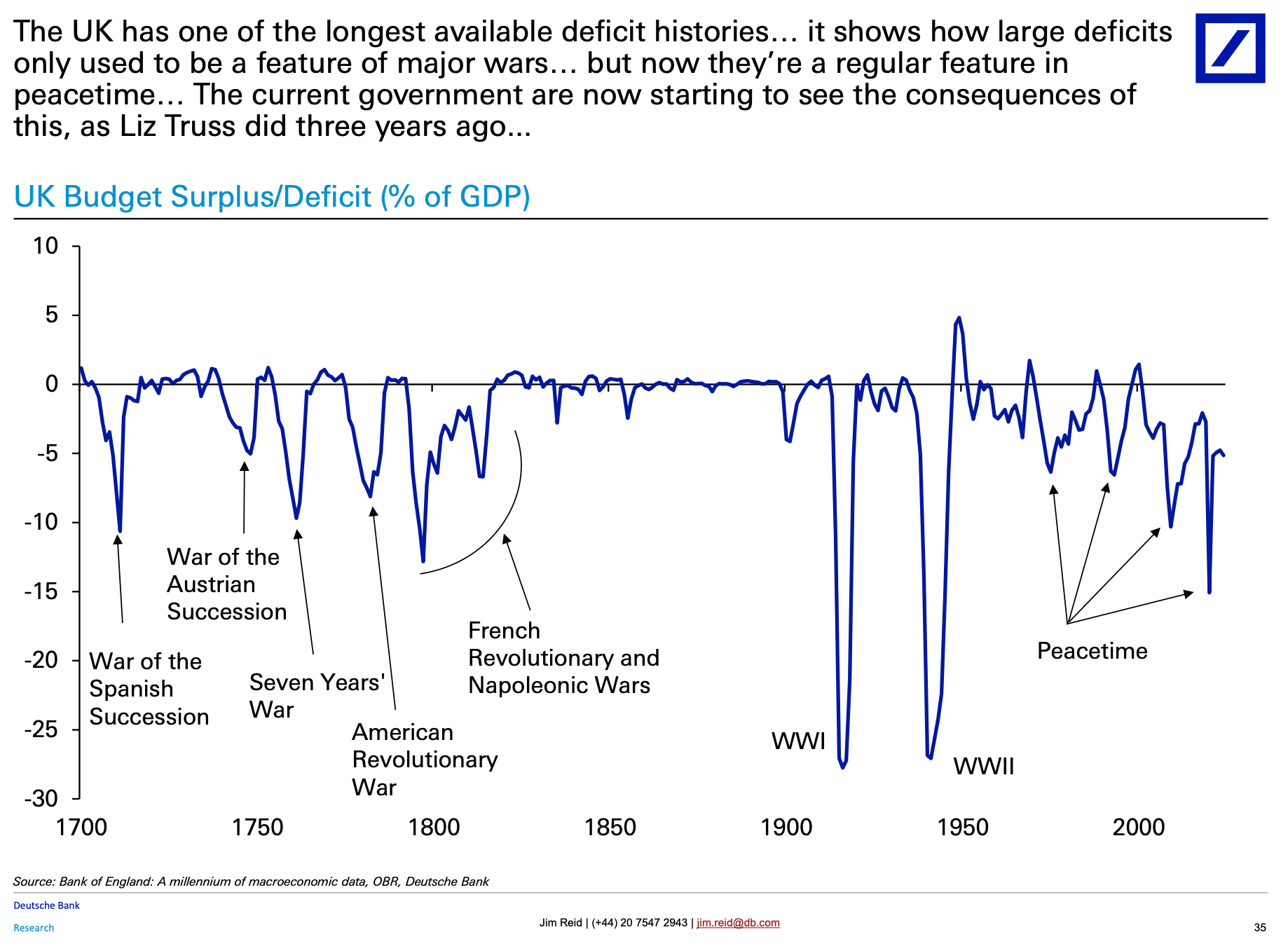The United Kingdom offers a sobering precedent for what we are now witnessing in Germany. Historical budget data show that Britain’s deepest deficits occurred almost exclusively during major wars – the War of the Spanish Succession, the Napoleonic Wars, the World Wars. Crucially, those wartime deficits were followed by rapid debt reduction, driven by post-war growth, inflation, and disciplined fiscal consolidation.

In contrast, today’s deficits in Britain – and increasingly across Europe – are peacetime phenomena. They lack both the political legitimacy of wartime borrowing and the natural reset mechanisms of post-conflict reconstruction. The result is a slower, more fragile downward trajectory, where debt burdens accumulate without relief.
This is precisely why war begins to look like an economic solution: it legitimises deficit spending, accelerates the destruction of unsustainable liabilities, and creates the conditions for rapid restructuring once the conflict subsides. Germany’s militarisation therefore cannot be understood in isolation. It fits into a broader historical pattern: when peacetime deficits become permanent and politically untenable, war is reframed as both necessity and cure.